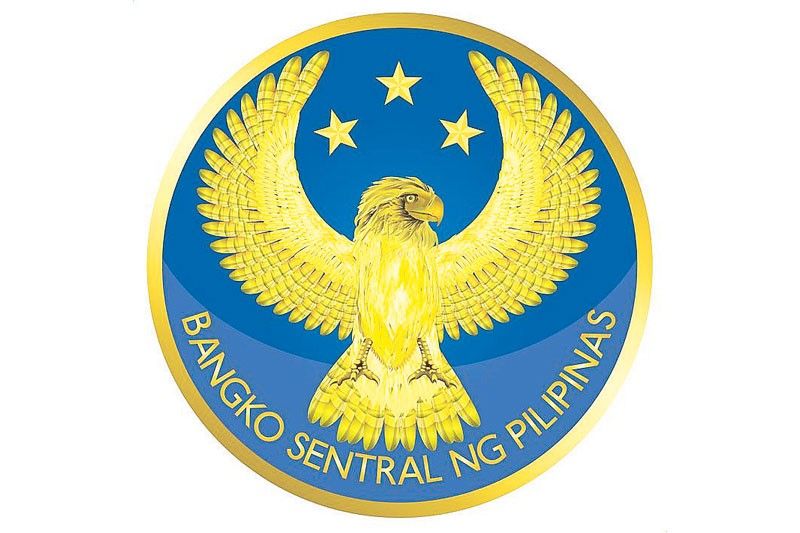BSP keeps rates steady

MANILA, Philippines — As expected, the Bangko Sentral ng Pilipinas (BSP) kept its key policy rates untouched for the third straight meeting as part of a prudent pause to assess the emerging risks to inflation and the challenging outlook for economic growth.
In a press conference, BSP Governor Eli Remolona Jr. said the Monetary Board unanimously decided to keep interest rates steady, but decided to raise inflation forecasts for the next three years amid rising price pressures.
Remolona said the four members of the Monetary Board all decided to keep the overnight reverse repurchase rate at 6.25 percent, the overnight deposit rate at 5.75 percent and the overnight lending rate at 6.75 percent.
This is the first rate-setting meeting chaired by Remolona, who was appointed as BSP chief last June, replacing former governor Felipe Medalla.
Aside from Remolona, other members of the Monetary Board are Finance Secretary Benjamin Diokno, Bruce Tolentino and Anita Linda Aquino.
President Marcos has yet to name the replacements for former members Medalla, Peter Favila and Antonio Abacan Jr., whose terms expired in July.
“Normally we don’t tell you how the voting went, but this time I guess it is obvious. We did four votes and there are only four of us. You can do the math,” Remolona said.
While latest baseline projections show a return to inflation target of two to four percent by the fourth quarter, Remolona said higher international oil prices have prompted the central bank to hike its inflation forecasts to 5.6 percent from 5.4 percent for 2023, 3.3 percent from 2.9 percent for 2024, and to 3.4 percent from 3.2 percent for 2025.
“Nonetheless, the balance of risks to the inflation forecast continues to lean toward the upside. Potential price pressures are linked to the impact of possible higher transport charges, higher minimum wage adjustments, persistent supply constraints on key food items, and the effects of El Niño weather conditions on food prices and power rates,” Remolona said.
Meanwhile, the BSP chief said a weaker-than-expected global economic recovery remains the primary downside risk to the inflation outlook.
Inflation averaged 5.8 percent during the seven-month period, still above the BSP’s two to four percent target.
Aside from the higher oil prices in the world market, BSP Deputy Governor Francisco Dakila Jr. said other factors that led to the higher inflation projections include the higher inflation, the higher-than- expected minimum wage adjustment, and the recent developments in the peso-dollar exchange rate.
The peso almost touched the 57 to $1 level on Monday due to the decision of the US Federal Reserve to further hike interest rates and the decision of Fitch Ratings to downgrade the credit rating of the US to AA+ from AAA.
“Given that we project slightly higher inflation rates compared to the previous forecasts, the basic story remains the same. We have declining inflation rates and we expect to be within the target range in 2024 and 2025. That story hasn’t changed,” Remolona said.
On the other hand, the country’s gross domestic product (GDP) growth slumped to 4.3 percent in the second quarter from 6.4 percent in the first quarter.
According to Remolona, the Monetary Board also recognized the challenging outlook for economic growth, as the weaker GDP outturn for the second quarter reflected a broad-based slowdown in domestic demand.
He pointed out that household consumption slowed due to elevated commodity prices, while government spending contracted relative to the previous year.
“Given these considerations, the Monetary Board deemed it appropriate to maintain monetary policy settings to allow a moderation of inflation even as authorities continue to assess the emerging risks to the inflation outlook,” the BSP chief said.
Remolona said monetary authorities believe that the strength of economic activity going forward is likely to moderate as pent-up demand wanes and the full impact of prior monetary policy tightening continues to manifest.
At the same time, the BSP chief said that fiscal impulse through programmed spending could support the growth momentum.
The fiscal authorities are now pushing agencies to ramp up spending to fulfill the 2023 public expenditure program. Sustained non-monetary measures remain crucial in addressing lingering supply-side pressures on prices.
Remolona reiterated that the BSP remains prepared to respond as necessary to safeguard the inflation target, in keeping with its primary mandate to ensure price stability.
ING Bank senior economist Nicholas Mapa said the BSP retained a hawkish stance as it recognizes upside risk to inflation.
“We expect the BSP to keep an eye on risks to the inflation outlook as well as on growth momentum in the coming months,” Mapa said.
China Bank chief economist Domini Velasquez said the BSP governor was less hawkish than anticipated despite higher inflation paths for the next two-and-a-half years.
“Although he (Remolona) highlighted heightened upside risks to inflation, concerns on domestic demand was also underscored, with BSP conveying that demand will likely moderate in the coming quarters,” Velasquez said.
- Latest
- Trending






























